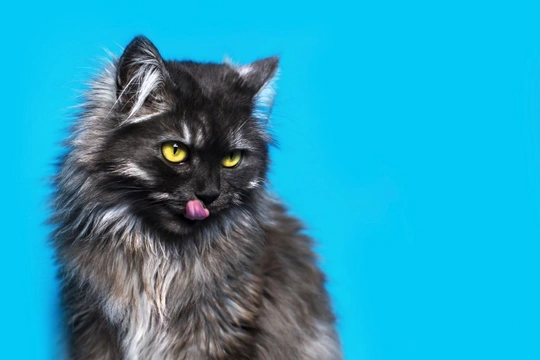
What does it mean if your cat drools?
Drooling and slobbering are traits that we generally associate with dogs rather than cats, but cats can and sometimes do drool as well – and there are a wide range of different reasons for this. If your cat drools sometimes in set situations, this is probably not a problem, and we’ll explain some of the reasons for why this might be happening within the article. However, sometimes drooling in the cat can indicate that something is wrong – and in some cases, it may be your first indication that your cat is sick or injured and needs to go to the vet promptly.
In this article we will explain the most common causes of drooling in cats and outline how you can tell what is causing your own cat to drool, and if their drooling is a problem or not. Read on to learn more about what it means if your cat drools.
Anticipation of food or prey
The image of dogs slobbering as you get their meal ready is one that most of us can quickly call to mind, and if your cat is clamouring for a tasty treat like tuna or freshly cooked chicken, they might drool in anticipation, particularly if they’re waiting a while for you to come up with the goods!
If your cat is stalking prey or is watching something through a window like birds at a feeder outside, they might well vocalise, become excited and even drool, but this behaviour will stop when your cat either gets their treat, or the treat (or potential prey) is removed.
Excitement or enjoyment
Cats may drool if they’re excited about food, but they might also drool if they’re really happy! Some of us own cats that purr really loudly and become really relaxed and pliant when we pet them, and in some cats, this may also be accompanied by drooling. If this is the cause of your own cat’s intermittent drooling, it will usually be obvious.
Missing teeth
If your cat has some missing teeth – perhaps because they have lost them earlier in life through tooth decay or an injury, or because they have had rotting teeth removed as part of a sedated dental procedure – they are more likely to drool. This is especially true if the missing tooth or teeth are in the lower jawline, at the sides or middle.
Drooling in cats with missing teeth is most likely to occur when they are relaxed and purring, or anticipating a meal.
Unhealthy teeth and gums
If your cat’s teeth are in poor condition and/or their gums are sore or inflamed, this will cause them a significant amount of pain and discomfort. This can lead to your cat being unable to eat comfortably, dropping food they pick up, and drooling too.
If your cat’s teeth and gums look like they’re in poor condition, if they have bad breath or if they simply haven’t had a dental check up for some time, ask your vet to examine their teeth as they may need a veterinary dental procedure to correct such issues.
Car sickness and general stress
Cats don’t usually travel in cars very often, and unlike dogs, they rarely get completely comfortable with or actively enjoy car journeys. Some cats suffer from car sickness or general stress from travelling in the car or even being put into a carrier, which can cause drooling as a stress reaction, or due to the nausea associated with car sickness.
Heatstroke
Cats aren’t generally as sensitive to heatstroke as dogs are, as they are desert animals that are much more tolerant of the heat. However, cats can and sometimes do suffer from heatstroke, and one of the symptoms of this is drooling.
If the weather is hot, if your cat has been very active, or if they are showing other signs that something is wrong as well as drooling, contact your vet immediately for advice on how to proceed.
Poisoning or toxicity
Poisoning and toxicity by virtually any substance can cause a wide range of varied symptoms in your cat. One of these is drooling – and whilst this symptom won’t necessarily accompany poisoning or toxicity, it is one of the most common symptoms to be on the lookout for.
If your cat is drooling for no obvious reason and/or you see any other symptoms in them, again, contact your vet ASAP.
Certain types of illnesses
Certain types of feline illnesses and diseases can cause drooling too, and this is a generalised symptom that lets you know something is wrong but that may not provide any pointers as to what.
Again, if the drooling is out of character, sudden in onset, or accompanied by any other symptoms, talk to your vet straight away, as your cat may need to be seen quickly.
Injury or impact
Injuries or impacts such as being hit by a moving vehicle or anything else that damages the cat’s head or face can cause drooling, particularly if the jaw is injured. Cat’s jaws are actually very delicate and can break or dislocate with relative ease, and drooling that was caused by or may have been caused by an injury should be checked out by your vet immediately.
Even if your cat’s head was not harmed, drooling can also result from other injuries or the stress involved in an injury, so call your vet straightaway.



